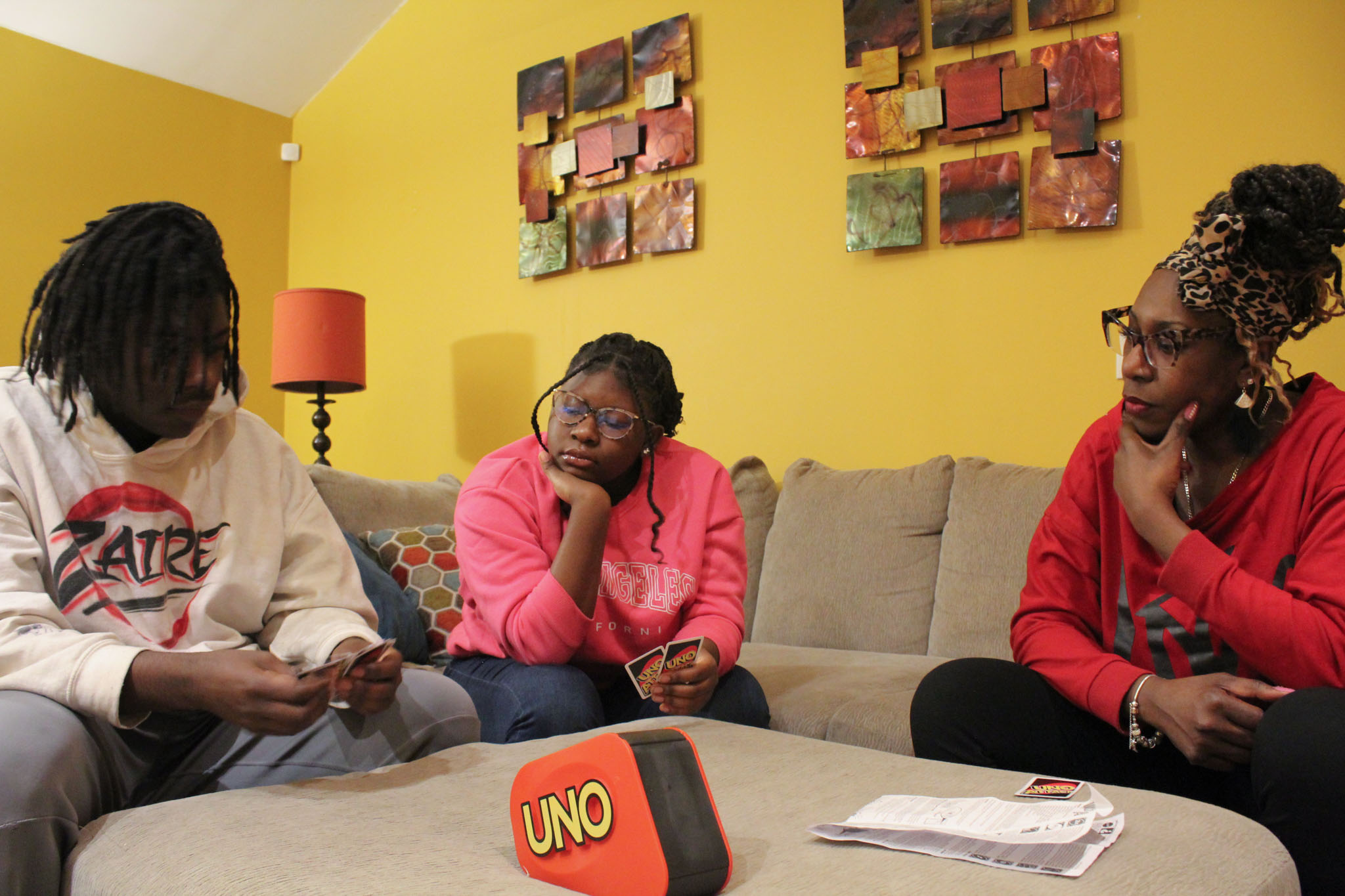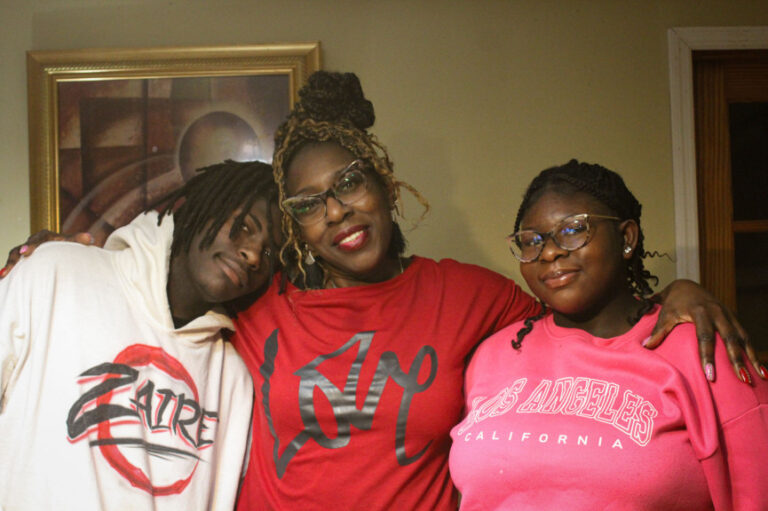When Carolyn Johnson was raising her twins, one of her biggest challenges was helping them get to know people who are different from them. She said back then, Zaire and Kailah, now 15, tended to keep to themselves.
That changed after the kids got involved with DREAAM, or Driven to Reach Excellence and Academic Achievement for Males — a nonprofit organization in Champaign that offers programs for kids and families.
“It helped them to be social with everyone, even those that they wouldn’t usually socialize with,” Johnson said. “[DREAAM] reaches all races, backgrounds and everything. I wanted my kids to be exposed to all of that.”
In addition to benefiting her children, Johnson said DREAAM has been an integral part of her experience as a single mother.
“With DREAAM, I didn’t feel alone as a parent,” she said. “I felt like I could reach out if there was ever anything I needed. DREAAM felt like family.”
Many after-school programs provide help with homework and fun activities for kids. But DREAAM aims to have an even greater impact on young people, helping them build lasting relationships and setting them up for lifelong success, said Tracy Dace, the founder and CEO of DREAAM.
DREAAM offers free after-school and summer programs, workforce development and job preparation for teens and young adults. Funded by grants and donations, the group also organizes trips to museums, colleges, beaches and other locations outside the state.
Dace started the organization in 2015 with a group of 10 boys — with a goal to support boys academically, socially and emotionally.
“It was this vision for, by supporting our children at an early age, then we can begin to think about disrupting the school-to-prison pipeline, disrupting poverty, knowing that those early academic successes will lead to greater outcomes in their life,” Dace said.
DREAAM expanded to include girls during the pandemic. Today, Dace said DREAAM is a space for any and everyone who is seeking hope and opportunity.
DREAAM’s impact on families
Johnson first met Dace when she enrolled her oldest son in the Don Moyer Boys and Girl Club’s after-school program, which Dace was a part of.
Johnson said Dace quickly became a part of the family.
“He was very instrumental in our family because my son had some behavior challenges, and Mr. Tracy was very supportive in regards to me being a single mom,” Johnson said.
Johnson said her son stayed in the program for several months, but even after he left, the family remained close with Dace.
A few years later, Johnson enrolled her youngest son, Zaire, into the DREAAM program, which Dace had recently founded. Zaire was in second grade at the time.
Zaire said around that time, his father was no longer in his life — and Dace quickly became a father figure to him.
“Since my father wasn’t around at that time, I really didn’t know how to be a proper man, to me, at least,” Zaire said. “Mr. Tracy stepped in for us.”
Dace isn’t the only person Zaire connected with through DREAAM. He said he has learned the importance of brotherhood by forming meaningful relationships with staff and his peers.

Brotherhood “is basically what DREAAM is for,” Zaire said. “We may not be blood-related brothers, but that’s not what all family is about.”
Kailah, Zaire’s twin, attended DREAAM events for a few years before officially joining the program when it began accepting girls during the pandemic. She and Zaire have been involved with the program ever since. They both said they hope to start working for DREAAM when they turn 16 later this year.
DREAAM originally catered toward Black children and families, Dace said, but now it’s becoming more diverse. Kailah said she’s thankful that she’s been able to meet people who are different from her.
“They may go through struggles that I may not have to experience,” Kailah said. “I’ll never get to see that, but I can see that through somebody else’s shoes.”
Kailah said one of the most impactful parts of the program is the opportunity to visit colleges and universities, especially for those who didn’t picture higher education as an option for themselves.
“Some people never thought they could probably go to college because of the lifestyle they endured as a kid,” Kailah said. “The college trips made them think, ‘Oh yeah, this is something that I want to do one day. This is a goal I want to have in life.’”
The critical work of providing kids with opportunities
Organizations like DREAAM play a vital role, said Ruby Mendenhall, an associate professor in African American Studies and Sociology at the University of Illinois Urbana-Champaign. As part of her research, she studies the impact of social inequality on people throughout their lives.
“Just to see young people getting the exposure and seeing the light come on, and then also giving them the unprecedented access — I think that’s critical,” Mendenhall said. “I think giving them opportunities around education is critical.”
Dace said many “DREAAMers” see their grades improve — but academics is just one piece of the individualized support DREAAM provides.
“We see it as this multifaceted way of reaching children and providing them with a variety and a wide range of experiences and skill-building so that they can have what they need in order to be healthy and successful,” Dace said.
Seeing kids show that they want to be there is proof to Dace that DREAAM is effective.
“When I think about DREAAMers and families who’ve been with us for over five years, who continue to return for our programs, for me, that says that we are making an impact,” he said.
Holding onto hope despite the challenges
One of the biggest challenges of doing this work, Dace said, is seeing kids, young adults and their families impacted by violence. He said some DREAAMers have lost relatives to gun violence.
“That’s very challenging when you really deeply experience that, and you don’t quite know how to change that,” Dace said. “That is what keeps me up at night, and it is very painful.”
He said some DREAAMers have been victims of gun violence themselves, including a 19-year-old who was shot and killed last summer. Dace recalled receiving a call early in the morning after it happened and going to the hospital to be with the young man’s mother.
“I remember it vividly and still reflect on it,” he said. “You hear about it, you read about it, you have conversations about it, but in those situations, it’s real.”
Despite the challenges, Dace said he holds on to hope that DREAAM can help change lives.
“I’m still hopeful. I’m still very encouraged by what we’re doing,” Dace said.
He said he loves seeing people come together to support programs like DREAAM.
“I just think as a community, we really have this unique opportunity to support each other and build some coordinated services and programs that can really help transform some of the issues into some greater positive outcomes in our community,” he said.
More information about getting involved with DREAAM can be found on the program’s website.

